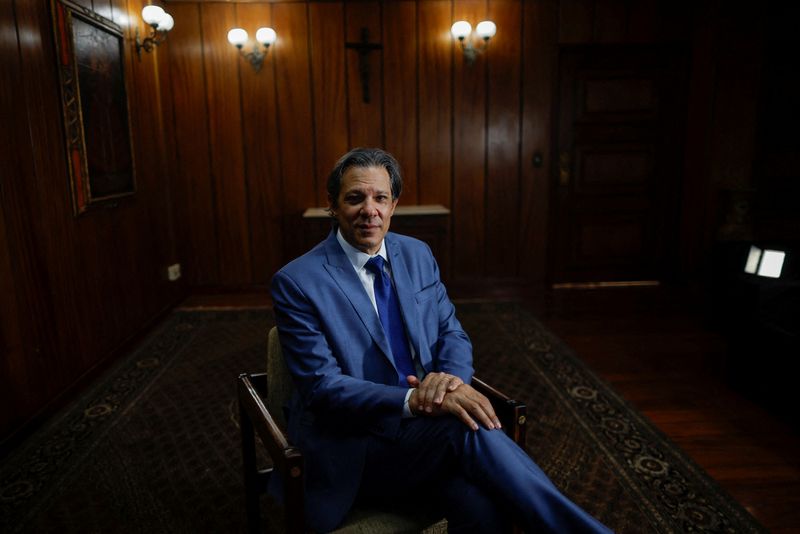Brazil’s Haddad affirms fiscal commitment but avoids questions on 2024 budget target
2023.10.30 12:24

© Reuters. FILE PHOTO: Brazilian Finance Minister Fernando Haddad attends an interview with Reuters in Brasilia, Brazil October 18, 2023. REUTERS/Adriano Machado
BRASILIA (Reuters) – Brazilian Finance Minister Fernando Haddad said on Monday that as long as he is in his job he will look to ensure “fiscal balance”, but stopped short of saying the government’s goal of erasing the budget deficit in 2024 remains in place.
“My goal has been set, I will seek fiscal balance,” Haddad told reporters in Brasilia, after President Luiz Inacio Lula da Silva last week said there was no need for his government to zero its fiscal deficit next year.
The president’s statement triggered a negative reaction in the market and further eroded confidence in his commitment to fiscal responsibility.
When questioned multiple times about whether the government would alter the target of eliminating the primary deficit set for the next year, Haddad did not provide direct answers to the questions during a news conference.
Instead, he emphasized that he would seek fiscal rebalancing in the face of a challenging scenario, acknowledging significant tax concessions that erode Brazil’s tax collection base and high borrowing costs.
“We brought to the president’s consideration what is happening with the tax revenue, because it is not following (our expectations), and I told the president that we have several alternatives, including anticipating measures that would be taken in 2024,” he said.
Haddad also said he had received instructions from the president to share this scenario with lawmakers.
The goal of erasing the primary deficit in 2024 had been outlined in new fiscal rules introduced by Lula’s administration and approved by Congress earlier this year, aiming to prevent the uncontrolled growth of public debt amid higher social expenses.
Although always met with skepticism by both the market and political circles within Lula’s sphere, Haddad until now had been vocal in defending the viability of the goal, as long as a series of measures aimed at boosting public revenues designed by the government were approved.








